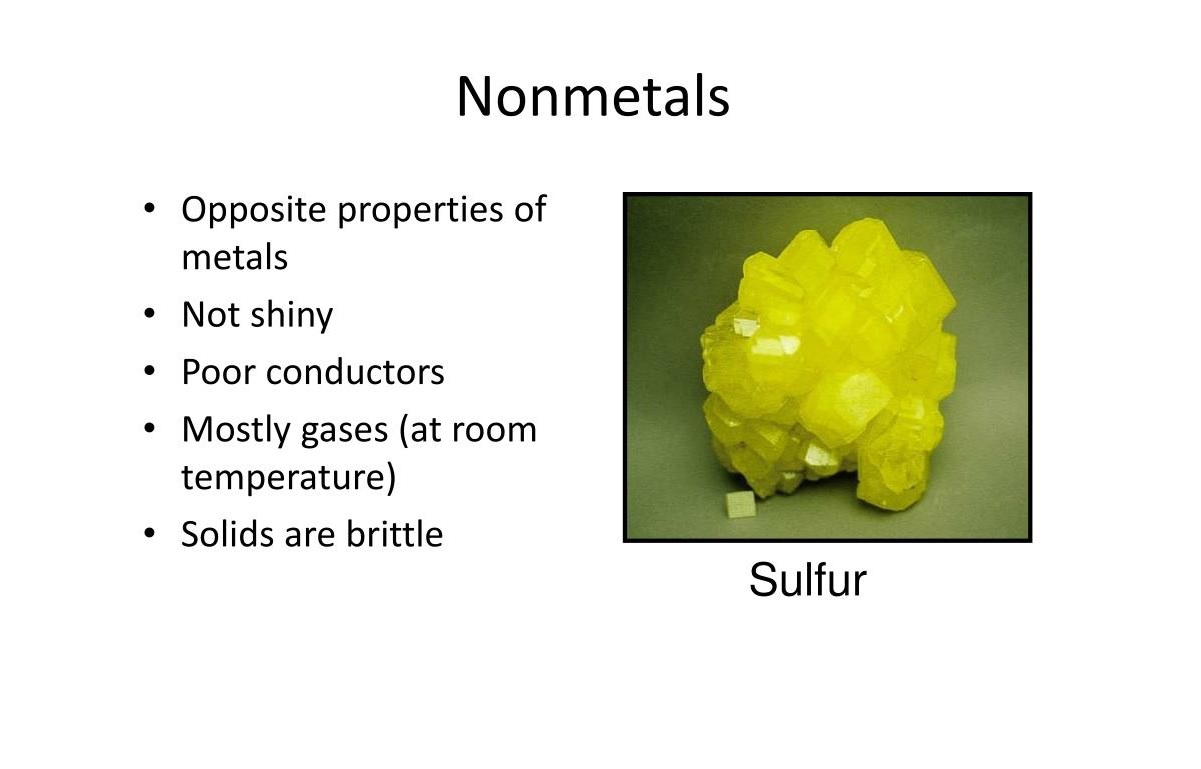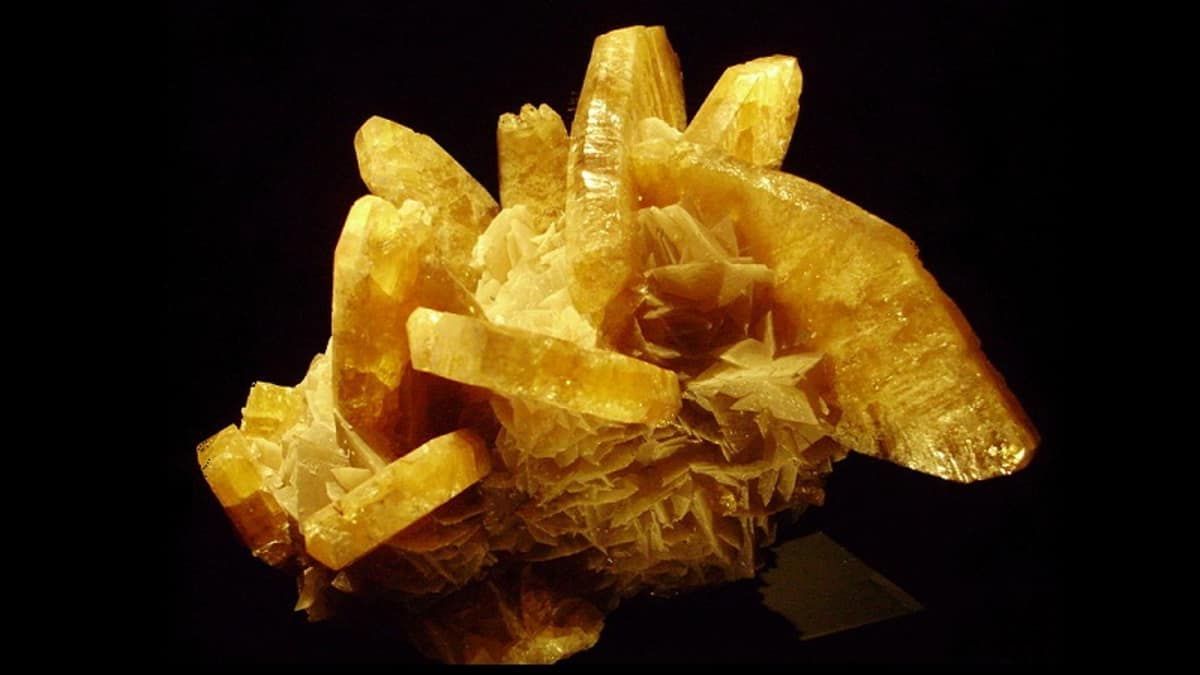
Nonmetals are fascinating elements that play crucial roles in our daily lives. From the air we breathe to the technology we use, these elements are everywhere. But what makes them so special? Nonmetals are unique because they lack the metallic properties of luster, conductivity, and malleability. Instead, they are often brittle, poor conductors of heat and electricity, and can exist in various states of matter. They are essential in forming compounds like water, carbon dioxide, and even the DNA in our cells. Ready to learn more? Here are 17 great facts about nonmetals that will blow your mind!
What Are Nonmetals?
Nonmetals are elements that lack the characteristics of metals. They are usually poor conductors of heat and electricity, and they can be gases, liquids, or brittle solids at room temperature. Let's dive into some fascinating facts about these unique elements.
Unique Properties of Nonmetals
Nonmetals have some distinct properties that set them apart from metals. Here are some intriguing details:
-
Nonmetals are poor conductors of heat and electricity. Unlike metals, which are excellent conductors, nonmetals do not easily allow heat or electricity to pass through them. This makes them useful as insulators.
-
They can exist in all three states of matter. Nonmetals can be found as gases (like oxygen), liquids (like bromine), or solids (like sulfur) at room temperature.
-
Nonmetals have high ionization energies and electronegativities. This means they tend to gain electrons during chemical reactions, making them more likely to form negative ions.
-
They are not malleable or ductile. Nonmetals cannot be hammered into thin sheets or drawn into wires. Instead, they are usually brittle and will break or shatter when struck.
Common Nonmetals and Their Uses
Nonmetals play crucial roles in various applications. Here are some common nonmetals and their uses:
-
Oxygen is essential for respiration. Every breath you take involves oxygen, which is necessary for the survival of most living organisms.
-
Carbon is the backbone of organic chemistry. All known life forms are carbon-based, and carbon compounds are the foundation of organic chemistry.
-
Nitrogen makes up about 78% of the Earth's atmosphere. This nonmetal is crucial for the production of amino acids and proteins in living organisms.
-
Sulfur is used in the production of sulfuric acid. Sulfuric acid is one of the most important industrial chemicals, used in everything from fertilizer production to oil refining.
Interesting Facts About Nonmetals
Here are some more captivating facts about nonmetals that you might not know:
-
Hydrogen is the most abundant element in the universe. It makes up about 75% of the universe's elemental mass.
-
Phosphorus is essential for life. It plays a key role in the formation of DNA, RNA, and ATP, the energy currency of cells.
-
Chlorine is used to disinfect water. This nonmetal is commonly used in swimming pools and drinking water to kill harmful bacteria.
-
Iodine is necessary for thyroid function. It is a crucial component of thyroid hormones, which regulate metabolism.
Nonmetals in Everyday Life
Nonmetals are all around us, often in ways we might not realize. Here are some examples:
-
Fluorine is used in toothpaste. This nonmetal helps to prevent tooth decay by strengthening tooth enamel.
-
Helium is used in balloons. Because it is lighter than air, helium is perfect for filling balloons and making them float.
-
Neon is used in advertising signs. Neon lights are famous for their bright, colorful glow, which is used in many signs and displays.
-
Argon is used in light bulbs. This nonmetal is often used to fill incandescent light bulbs to prevent the filament from oxidizing.
-
Bromine is used in flame retardants. This nonmetal is an important component in many materials designed to resist burning.
The Fascinating World of Nonmetals
Nonmetals play a crucial role in our daily lives, from the air we breathe to the technology we use. Elements like oxygen and carbon are essential for life, while silicon is a cornerstone in electronics. Nonmetals are versatile, found in everything from medicines to cleaning products. They’re not just limited to Earth; hydrogen and helium are abundant in the universe, fueling stars and forming galaxies. Understanding nonmetals helps us appreciate the complexity and beauty of the natural world. These elements might not be as flashy as metals, but they’re indispensable. Next time you take a breath or use your smartphone, remember the nonmetals making it all possible. They’re the unsung heroes of the periodic table, quietly supporting life and technology in countless ways.
Was this page helpful?
Our commitment to delivering trustworthy and engaging content is at the heart of what we do. Each fact on our site is contributed by real users like you, bringing a wealth of diverse insights and information. To ensure the highest standards of accuracy and reliability, our dedicated editors meticulously review each submission. This process guarantees that the facts we share are not only fascinating but also credible. Trust in our commitment to quality and authenticity as you explore and learn with us.


